We closed the heavy storm shutters with their green paint flaking like dry skin and listened to the rain start kicking up the sand outside. Closing the storm shutters always felt kind of disrespectful—like cheating an act of God that you were supposed to endure, or at least bear witness to.
As it was the wind found its way through plenty of old knotholes and cracks in the walls of the beach house. We had been out swimming a half-hour earlier and where it came through the gaps in the old wood it raised goosebumps on our still-damp skin, one of those occurrences that forces you to remember that it's possible to shiver even in August.
“Dad?” he asked.
“Yeah?”
“Are we going to lose power?”
“It's definitely possible. This looks like it could go on for awhile.”
He was still shirtless, just had the fraying towel from the bathroom back home wrapped around his thin frame. His hair was still matted down with damp and in the back it looked like duck down, the way it stuck out everywhere.
“Let's turn off the lights and get it over with then.”
“I don't know if that's necessary, kid. Don’t you want to wait and keep the light as long as we can?”
“Please, Dad?”
“Alright.”
I walked around and started flipping the switches down—the two big overhead lights in the dining room, the bare bulb in my bedroom, the small lamp in his, the ultra-bright vanity lights in the bathroom, the one by the door that put a floodlight onto the back coral drive—and watched him dash from room to room unplugging all the oscillating fans and the toaster and the radio. It wasn’t necessary to do all that but he seemed worked up enough that I didn’t want to fight him on it.
He sat on the wicker chair, the one with the cushion that always smelled like salt even if you washed it with the laundry. He had dragged it into the middle of the room and curled himself up, looking at nothing in particular.
“You hungry?”
“Not really.”
“Want some juice?”
“No, I'm okay.”
I camped out at the fridge, doing my best not to be preemptively annoyed at how much food we’d waste if the power went out, and made a turkey sandwich as the lightning flashed outside. We couldn't see the bolts, just the bluish border of light that illuminated the seams of the shutters with every flash. The first few times the thunder cracked I could see him across the way shifting nervously in his chair. After an hour he looked practically sick with it. Like the lightning was striking somewhere inside him. Like the thunder was calling his name.
“Don't go outside, Dad.” It was a whimper, not a request. The thunder still rumbled distantly but by then the storm seemed to have blown by, and he saw me unlatching the heavy door behind the screened one.
“Why not?”
He didn't say anything, just sat shivering in the chair. I went out.
The sky had the storm-green veil to it that always comes after a blow. You couldn't see any stars, just a roof of clouds out over the water for miles and miles. I propped my bare elbows up on the rough wood of the deck railing and turned my face into the wind just long enough to feel awake again.
When I went back in he had left the chair and was in bed, tucked up under his comforter.
“What's the matter, kid?”
“Nothing.”
When his mom had left I had made a rule that he always had to tell me what was bothering him, and that if he didn't tell me I was allowed to assume that nothing was wrong. It was a shitty rule but I had said it and I didn't want to seem inconsistent, so I walked out of his early-dark bedroom and went to my own.
The next morning he had dark circles under his eyes and didn't look like he had slept. He helped me pick up the deck chairs that had blown off in the night and then took a walk by himself down the beach.
In his room I found a copy of the newspaper from the day before last. On page two was a story about a boy in the next town who had gotten electrocuted to death during a storm the previous week when he had stepped onto the screen porch and hit the light switch.

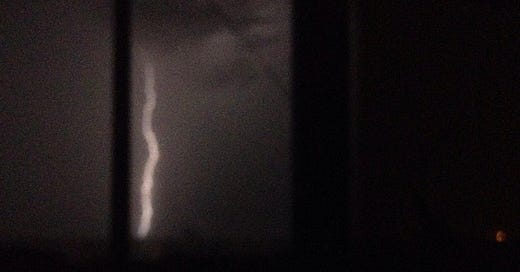




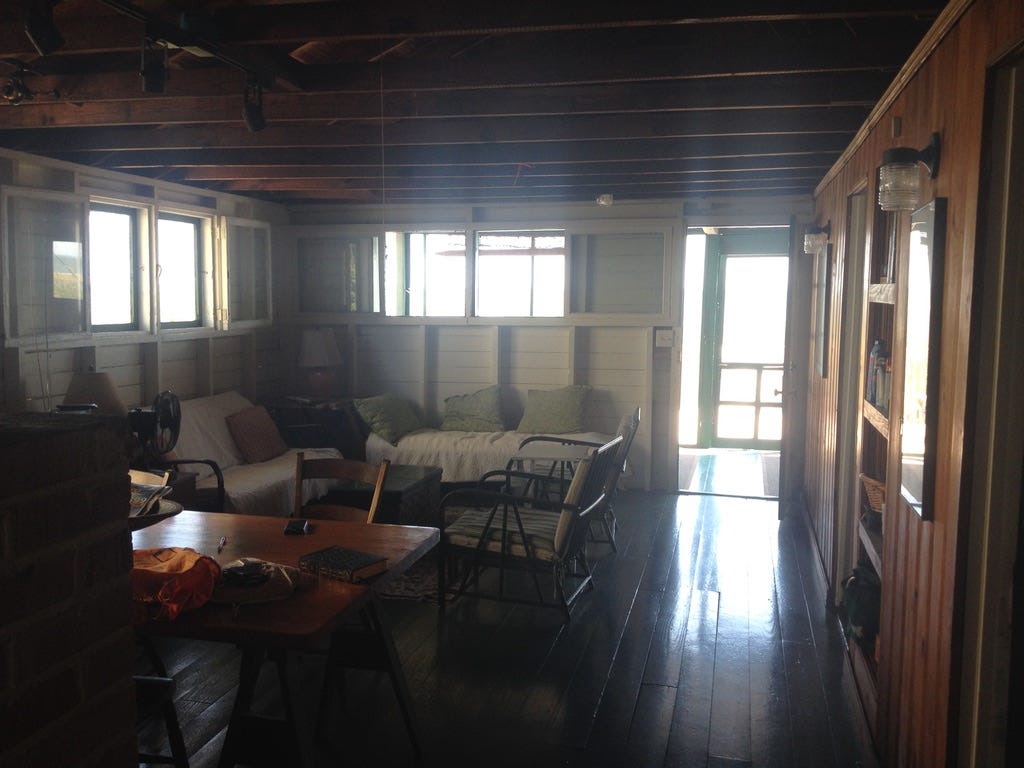

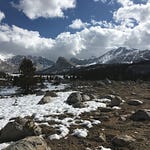
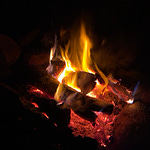

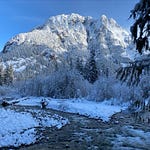

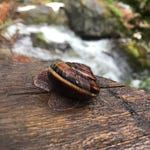
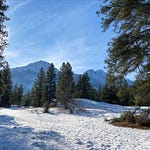
Share this post